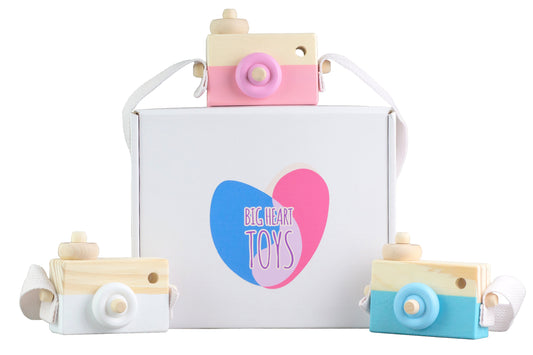Parenting a child with autism is a uniquely rewarding journey, but it also comes with its own set of challenges and uncertainties. The practical advice and strategies we’ve included here help parents navigate this path with confidence. Whether you're a parent seeking guidance or someone looking to better understand parenting someone with autism, these insights will empower you to foster understanding, create a nurturing environment, and, most importantly, promote the well-being of your child.
What Is Autism and How Does It Affect Children?
Autism, also known as Autism Spectrum Disorder (ASD), is a neurodevelopmental condition that affects how a person communicates, interacts with others, and perceives the world around them. In children, autism can manifest in a wide range of ways, but common characteristics include challenges in social interaction, repetitive behaviors, and restricted interests.
Autism is not a one-size-fits-all diagnosis. It looks a little different for every child and can range from very mild to severe. It is described as a spectrum because it encompasses a wide range of symptoms, characteristics, and needs.
Children with autism may struggle with understanding social cues, maintaining eye contact, and expressing themselves verbally. They may also exhibit sensory sensitivities and find it challenging to adapt to changes in routines or environments. While autism presents various challenges and your child may experience certain disabilities, early intervention and tailored support can help children with autism thrive and develop their unique strengths and abilities.
How Can Autism Influence a Child's Behavior and Learning?
Autism significantly impacts a child's behavior and learning processes, even though there is considerable variability among individuals. Many children with autism face challenges in social interactions, struggling to decipher social cues, make eye contact, or engage in reciprocal conversations, affecting their social development.
Many children with autism experience challenges in communication. This can manifest as delayed speech development or difficulty using and understanding verbal and non-verbal communication. Some children may use alternative communication methods such as gestures, pictures, or augmentative and alternative communication (AAC) devices.
Repetitive behaviors, such as rigid routines and intense interests, may disrupt learning environments. These can include repetitive body movements (commonly hand flapping), insistence on sameness in routines, and intense focus on specific interests or topics. These behaviors can interfere with learning when they become disruptive or distract from classroom activities.
Sensory sensitivities can lead to sensory overload, hindering a child’s ability to focus on tasks. Children with autism may have heightened or diminished sensitivity to sensory stimuli. For example, they may be hypersensitive to sounds, lights, textures, or tastes. Sensory sensitivities can lead to sensory overload or discomfort, making it challenging to focus on learning tasks.
Many children with autism struggle with transitions and changes in routines. They feel a need for strict routine, structure, and predictability. Sudden changes can lead to anxiety or meltdowns. With the frequent transitions and shifts in daily schedules that occur in a school environment, this can be particularly overwhelming to children with autism.
It's important to recognize that children with autism also possess unique strengths and interests. Nurturing these strengths and providing structure and individualized instruction, often in collaboration with parents and professionals, are crucial aspects of supporting their development and learning.
What Are the Challenges of Parenting a Child With Autism?
Parenting a child with autism presents unique challenges that parents must navigate alongside the rewards. One significant hurdle is communication difficulties, as children with autism often struggle with expressing their needs and emotions, making it challenging for parents to understand and respond effectively.
Behavioral challenges are another common obstacle, with many children with autism exhibiting behaviors like tantrums, aggression, or repetitive actions. Managing these behaviors can be emotionally and physically draining for parents, necessitating patience and coping strategies.
Social isolation is a challenge for children as well as their parents. Parents and caregivers may find it more challenging to partake in social activities or connect with other parents due to their children's unique needs and behaviors. This can understandably lead to feelings of loneliness and a lack of support from peers who may not fully comprehend their situation.
Financial strain is another concern, as the cost of therapies, interventions, and specialized education can be substantial. Navigating the complex educational system and advocating for their child's needs can be daunting and frustrating for parents, adding to the overall stress.
Being a parent of a child with autism can create a constant sense of worry, even if it lives in the back of your mind. The fear of the future and what’s to come can become emotionally exhausting, and the role of a caregiver can quickly take over your feeling of being your own person.
Despite these formidable challenges, many parents of children with autism find profound joy and fulfillment in their journey, often aided by early intervention, access to support services, and a robust network of family and professionals who can help them address these challenges effectively.
How Can These Challenges Impact the Parent-Child Relationship?
First and foremost, communication barriers can create frustration and miscommunication. For parents, one of the most frustrating feelings is knowing your child is dysregulated or unhappy and not being able to understand why or how to help.
Dealing with challenging behaviors, such as tantrums or aggression, can be emotionally taxing for parents. It may lead to feelings of helplessness and frustration. The constant demands of caregiving, along with managing the various other challenges, can lead to parental stress and burnout. When parents are overwhelmed, they may have less emotional energy to invest quality time in the parent-child relationship.
The time-intensive nature of caring for a child with autism can limit the availability of quality time for bonding and shared activities. Parents may find themselves juggling multiple responsibilities, leaving less time for meaningful interactions.
Balancing the needs of a child with autism and their siblings is another challenge all on its own. Siblings may feel neglected or resentful if not intentionally managed, impacting their relationship with the parents as well as with the child with autism.
Accommodating a child's sensory sensitivities may require adjustments in the home environment and daily routines. Adapting to these needs can be a learning process for parents and may initially create stress or uncertainty.
Despite these challenges, it's important to note that many parents of children with autism also experience significant growth and resilience. Building a strong support network, accessing resources and therapies, and finding effective coping strategies can help parents mitigate the impact of these challenges on the parent-child relationship. With patience, understanding, and a focus on their child's unique strengths and needs, parents can foster a strong and loving connection with their child with autism.
10 Tips for Parenting a Child With Autism
In this comprehensive guide, we'll explore 10 invaluable tips to empower parents in providing the best support and care for their child on the autism spectrum. From understanding autism's intricacies to advocating for your child's special needs, these practical strategies aim to enhance the parenting experience while fostering the growth and well-being of your beloved child.
Whether you're a parent seeking guidance or someone looking to gain a deeper understanding of autism parenting, these tips will equip you with the knowledge and tools to navigate this journey with compassion, resilience, and success.
1. Understand Autism Spectrum Disorder (ASD)
To effectively parent a child with autism, you need a comprehensive understanding of autism spectrum disorder (ASD). This means delving into the multifaceted aspects of ASD, including its wide-ranging symptoms, unique challenges, and potential interventions. Gaining insight into the intricacies of your child's condition is the first step toward providing the tailored support they need to thrive.
Your knowledge of your child’s diagnosis will help you to be more patient and understanding and will help you in educating others about your little one’s needs and differences.
2. Embrace Your Child's Diagnosis
Acknowledging and embracing your child's autism diagnosis is a pivotal moment in your parenting journey. It signifies your commitment to understanding their specific needs and finding the best ways to support them. Open and honest communication about their diagnosis can foster a sense of acceptance, helping your child feel more understood and valued for who they are.
Receiving an official autism diagnosis can be an emotional rollercoaster in and of itself. More often than not, the process of getting the diagnosis is long, intensive, and emotionally draining. It can be easy to let yourself drown in those feelings for a bit when the diagnosis comes.
Remember, your child is the same child they were before the diagnosis. Nothing about your little one has changed. You’ve worked hard to get this diagnosis, and you have now opened doors to support, accommodations, and the professional help they need. Although it comes with a flood of emotions, this diagnosis is beneficial for your child, and you did the right thing in working hard to get it.
3. Focus on Your Child's Strengths
Recognize that every child with autism possesses their own set of strengths and abilities. Celebrate these strengths as they form the foundation upon which new skills can be built. By nurturing and leveraging your child's unique talents, you can facilitate their growth and development in a way that aligns with their individuality.
Incorporating a strengths-based approach into your parenting involves identifying your child's strengths, providing opportunities for them to develop and showcase these strengths, and encouraging a sense of pride and accomplishment. Remember that focusing on strengths doesn't mean ignoring challenges but rather harnessing strengths to address and overcome those challenges effectively.
4. Use Positive Reinforcement
Positive reinforcement techniques, such as offering verbal praise, using stickers, or providing rewards for good behaviors, can be highly effective in managing your child's behavior and encouraging the acquisition of new skills. This approach promotes a constructive and motivating atmosphere for both you and your child.
While it can be hard at times to not focus on the challenges or negatives, shifting your mindset to celebrate the positives can be life-changing for both you and your child. Celebrating the wins, even the small ones, encourages the behavior you want to see and lets your little one know you’re rooting for them.
5. Create a Safe and Structured Environment
Children with autism often thrive in structured environments. Establishing predictable routines, setting clear rules and boundaries, and minimizing disruptive stimuli can significantly reduce instances of tantrums and meltdowns. Creating a secure and stable setting offers your child a sense of comfort and stability.
6. Seek Early Intervention Services
Early intervention is crucial for children with autism. If possible, reach out to healthcare professionals, pediatricians, and specialists who specialize in early intervention services. Timely support and behavioral therapy can significantly impact your child's development and long-term outcomes.
Early intervention in autism is essential because it capitalizes on the window of opportunity for optimal brain development, enhances communication and social skills, manages challenging behaviors, and provides tailored support. It empowers children with autism and their families to lead more fulfilling and connected lives.
7. Implement Applied Behavioral Analysis (ABA)
Applied Behavioral Analysis (ABA) is a widely recognized and evidence-based intervention for autism. ABA techniques can help manage challenging behaviors and promote the acquisition of new skills. Consider consulting with ABA specialists to incorporate these strategies into your child's daily routine.
8. Join Support Groups
Connecting with other parents and providers who are raising children with autism can be invaluable. Seek out family support groups and organizations like Autism Speaks that provide emotional support, practical parenting tips, and a sense of community. These networks offer a space for sharing experiences and gaining valuable insights from others who understand your journey.
9. Prioritize Self-Care
Remember that taking care of your own mental health and well-being is essential in your role as a parent. Balancing the demands of caring for a child with autism can be overwhelming, so prioritize self-care and seek support when needed to ensure you have the resilience and energy to be the best parent you can be.
It is easy to let your own needs fall to the side when caring so deeply for your child, but a healthy parent is a healthy person. Your emotional, mental, and physical needs are valid and crucial. Don’t feel guilty — take care of yourself, too!
10. Advocate for Your Child
As a parent, your voice is a powerful tool in advocating for your child's needs and rights. Be proactive in seeking appropriate services, accommodations, and educational support. By advocating for your child, you can make a significant difference in their access to resources and opportunities that facilitate their growth and development. For example, they may need your support to get an Individualized Education Plan (IEP) to help them do their best in school.
You are their number one supporter, and your advocacy can go a long way. Nothing is more rewarding than knowing you fought and accomplished something for your child.
How Can Big Heart Toys Support Parents?
At Big Heart Toys, we understand personally the journey you are on and the unique needs and challenges that come with it. We have navigated our own challenging journey and are here to support families by providing a sense of comradery and affordable toys tailored to your child’s unique needs.
How Can Big Heart Toys' Products Facilitate Behavior Modeling?
Big Heart Toys offers a range of products that can be instrumental in behavior modeling for children, especially those with autism or other developmental challenges. These products are designed to promote positive behaviors, social skills, and cognitive development through play and interaction.
Interactive books and social stories provide visual supports, which are highly effective tools for behavior modeling. These resources use clear and simple visuals to depict different social scenarios and appropriate behaviors. Children can easily relate to the visuals and learn how to respond in various social situations.
Big Heart Toys offers sensory-friendly toys designed to provide a safe and comfortable sensory experience. These toys can help children regulate their sensory responses and learn to cope with sensory challenges, promoting self-regulation and appropriate behaviors.
Our interactive play sets and games provide opportunities for children to engage in cooperative play and learn essential social and behavioral skills. These sets often include scenarios and characters that allow children to model appropriate behaviors and interactions while having fun.
How Does Big Heart Toys Promote Affordability, Accessibility, and Credibility?
We are committed to offering reasonably priced products. This affordability makes their resources accessible to families and educators who may have budget constraints, ensuring that children can benefit from these valuable tools without financial strain.
We also provide online access to all products, making it convenient for parents, caregivers, family members, and educators to browse and purchase items from the comfort of their homes. This online accessibility also allows for a broader reach, reaching individuals worldwide.
Big Heart Toys' products are developed by experts in the field of autism and developmental disorders. We prioritize evidence-based practices and thoroughly vet resources for credibility and effectiveness. This commitment to credibility ensures that parents and health professionals can trust the products as valuable tools for behavior modeling and development.
The Bottom Line
No matter how isolating this journey may feel at times, you are not alone. Visit Big Heart Toys and learn alongside us with research-based education and heartfelt understanding.
Sources:
Sensory Issues | Autism Speaks
Sensory Seeking vs. Sensory Avoiding in Children | Understood






